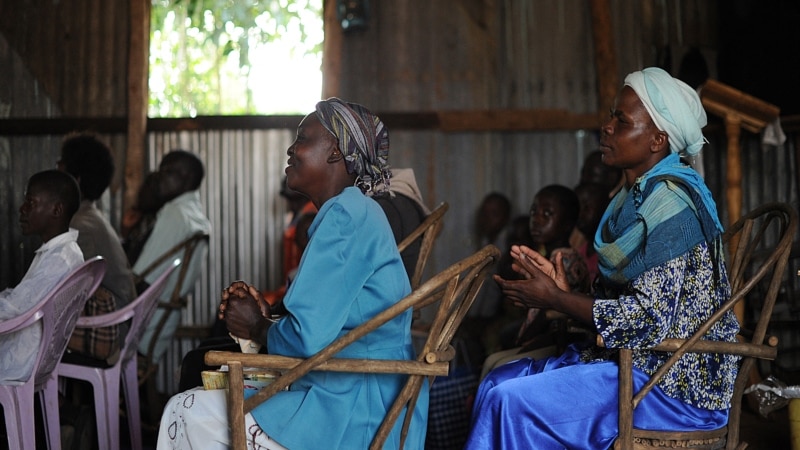Nairobi — Broadcasting in the Luo language, a Kenyan journalist is reaching indigenous women via radio to improve media literacy and combat disinformation.
The evening show on Dada Radio gets under way in Kenya’s Siaya County. The program “Mine Nyalo” — meaning “women can do it” — broadcasts in the local Luo language.
Dada, which means sister in Swahili, is the only women-oriented station in this community. Its founder, Harriet Atyang, started the station in 2023 to empower women and girls in Siaya, a fishing and farming community.
“When you look at issues like cultural beliefs that women are supposed to be seen and not to be heard, you realize that, worsened by the growing technology, the rural women will be left behind even more,” said Atyang.
But more exposure to the modern world, coupled with skills in media literacy, make a positive change for listeners like Mary Owade.
“I have learnt that when it comes to information, I have to verify it first before sharing with anyone else, because without that, the other person could also just spread lies. So, you must verify thoroughly,” she said.
Atyang uses her platform to inform audiences about issues including gender-based violence and health. And she offers workshops.
"I have trained 15 women and five men. It was also important, because most of the people I trained are members of our listeners group, so the community regards them with a bit of a higher esteem," she said.
Insufficient access to credible information for Kenya’s rural areas often makes them vulnerable to disinformation. That makes broadcasting in local languages more important, said Queenter Mbori of the Association of Media Women in Kenya.
“We are also creating awareness on how they can stay safe, and we are partnering with different organizations to also respond to issues that are coming up from misinformation and disinformation, issues like mental health awareness,” said Mbori.
Finding ways to combat disinformation can help break the cycle, say experts. Here’s Patrick Butler from the International Center for Journalists.
“We have what we call ‘training of trainers,’ so we want to help this program to spread more widely by giving journalists like Harriet the skills to become trainers themselves. And they are working in communities that may be especially vulnerable to disinformation,” said Butler.
Efforts like Dada Radio’s, which build on the long history of trust that community stations have with listeners, are seen by analysts as one way to reach these groups more effectively.


